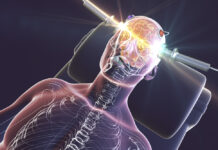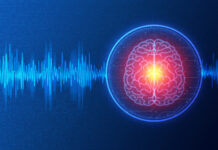Electroconvulsive therapy (ECT) is still given to approximately 2,500 people in England annually. A course of ECT consists of 6-12 sessions in which an electric current is applied to the brain, causing a seizure. The National Institute for Health and Care Excellence (NICE), which draws up evidence-based guidelines for UK clinical practice, published guidelines in 2003 that noted that there was very limited evidence for the effectiveness or safety of this procedure, and made an urgent call for more research. More recently, 26 Members of Parliament (MPs), including the shadow minister for Mental Health, Dr. Rosena Allin-Khan, have called for an independent enquiry into the practice and regulation of ECT.
Guest blog: Call for an independent review into the practice of ECT
The recently published draft NICE Guidelines for Depression in Adults revisited ECT along with their other recommendations. However, none of the serious concerns NICE raised about ECT in 2003, or since, have been addressed. Consultation on the draft closed on January 12.
An open letter from 50 people, including 18 ECT patients and relatives, 12 psychiatrists, and 7 professors, has been sent to NICE, and the government, calling for the ECT section of the draft guidelines to be ‘radically rewritten’ to avoid putting patients’ safety at risk.
https://univeastlond.prod.acquia-sites.com/sites/default/files/17431.pdf
The letter lists the ten most important flaws in the draft guidance:
- Abandoning the call for robust research into effectiveness and safety made by NICE in 2003 and reiterated in 2009 and 2014
- Abandoning NICE 2003’s call to establish safe dosages and consistent practice
- No statement about the need for regular testing for adverse cognitive/memory effects
- No recommendations on the provision of rehabilitation and compensation for memory loss/brain damage
- No comment on the huge regional variation in usage (up to 47-fold between different Trusts)
- Failure to address NICE 2003’s concern that many people are unaware of their rights and may be subject to coercion to have ECT
- Failure to address NICE 2003’s concern that the research ‘did not adequately capture the experience of service users’ who often felt that effects such as memory loss outweighed the benefits
- Failure to reiterate important limitations on the recommended uses of ECT cited in NICE 2003
- No statement about the failure to produce evidence-based patient information leaflets, as recommended by NICE 2003
- Failure to address the need for proper regulation of ECT, rather than optional, in house monitoring by the Royal College of Psychiatrists
The letter concludes:
‘Failure to address these concerns would represent a wilful neglect of patient safety, and a breach of NICE’s own commitment to evidence-based practice. …We trust the committee will, even at this late stage, and in line with its own principles and procedures, reconsider’.
One of the signatories is Dr. Sue Cunliffe who is no longer able to work because of the brain damage caused by ECT. She commented, in a media release about the letter:
‘NICE’s failure to produce strong, evidence-based guidelines in the past contributed to my ending up brain-damaged. Their new draft guidelines are a breach of their own principles and would be a massive step backwards, giving psychiatrists the green light to practise even more unsafely than was the case when they damaged my brain’
Another signatory is Dr. Chris Harrop, who co-authored two recent independent audits of ECT practice in England which identified multiple flaws, including in monitoring for memory loss and in ECT information leaflets. He wrote:
‘Passing responsibility for setting standards to the Royal College of Psychiatrists’ ECT Accreditation Service, as suggested in the draft, would be like asking a drug company to set safety standards for its own drugs. The conflict of interest is blatantly clear.’
‘Despite our making sure that the committee was aware of recent research into how badly ECT is currently being administered, they have produced a negligent draft which abandons the principles of evidence-based medicine. Dropping the call they have been making for 20 years for robust research into efficacy and safety would be a chilling development.’
Consultant Clinical Psychologist, Dr. Lucy Johnstone, added;
‘Something has gone seriously wrong at NICE to produce such a blatantly inadequate document that would inevitably put patients’ safety at risk. Professionals and patients have been campaigning about this for years. We hope they have sufficient integrity to reconsider’.
Sophie Corlett, Director of External Relations at Mind said:
‘While there has been some good progress in NICE’s draft guidance on depression in relation to access to different therapies, we urgently need to see that progress built on further by NICE re-appraising the effectiveness and safeguards around the use of ECT. We know that some people have found it effective for improving symptoms of mental health problems – particularly depression – when nothing else has worked while others have experienced serious adverse side effects. This re-appraisal must involve people with lived experience of depression and ECT and must be timely so as not to further delay the introduction of the new treatment guidance. We also need to see NICE make recommendations relating to better data collation and reporting for those who have experienced adverse side effects as a result of ECT.’
British solicitors Freeths LLP are currently preparing claims on behalf of patients who have suffered long-term memory loss as a result of ECT administered without their informed consent.
Meanwhile, in the USA, a manufacturer of ECT machines has filed for bankruptcy because so many lawsuits have been filed against it that it can no longer get insurance.
https://reorg.com/mecta-corp-first-day-declaration/















Involuntary ECT is an abomination.
Report comment
“Voluntary” electric shock “therapy” (no, I won’t use the euphemism) is also an abomination, since there is absolutely no way to give “informed consent.” Anyone who really understood what this “therapy” involves would run the other way full speed! Though it seems more than a tad counterintuitive that inducing a grand mal seizure through electrocuting the “patient” would in any scenario be advisable.
Report comment
Informed consent starts with facts like the brain uses 0.000001 volts and they administer up to 400 volts to get a seizure. The professionals call the voltage small and get away with the lie. Why do other professionals not call them on the lie of small?
Report comment
Some good news, at least, that a US manufacturer went bankrupt – but, presumably, there are more than one?
Report comment
Well, it’s sad so many were harmed. But I agree, it’s good that “a US manufacturer went bankrupt.” ECT should be made illegal.
Report comment
I agree that ECT should be made illegal. But consider this—psychiatric drugs might really considered just “chemical ECT” as opposed to the electrical that ECT is. So, if we ban one, should we not ban the other? Thank you.
Report comment
I do agree, rebel, as one who … 20+ years after getting the antidepressant discontinuation syndrome induced symptom of “brain zaps,” misdiagnosed … that the “psychiatric drugs might really [be] considered just ‘chemical ECT.'”
So I do agree with you, that both ECT, and the psych drugs … that cause “brain zaps,” even if only when people are withdrawn from them inappropriately by doctors. They should likely all be made illegal.
Report comment
It’s almost as if psychiatry deliberately lies to the public to maintain its credibility and always gets away with it no matter the evidence. When non-psychiatrists protest, no amount of truth or credibility they possess matters. Perhaps psychiatry is like the big banks – too big to fail. As James Davies brilliantly pointed out in Sedated, psychiatry serves a critical societal role in countries like the US, UK, and Australia. The truth of psychiatric theories and practices may actually be irrelevant, for all practical purposes. And if that is true, I dare any person who interacts with the mental health system to wrap their head around that. I’m many years in and the implications are still almost too mind-boggling for me to process and I’ve seen through the con for a long time.
Report comment
Make no mistake, I totally agree with you, in regards to the fraud of the globalist banksters’ system, and the fraud of the psychiatrists’ system. They may be “too big to fail,” but both industries do need to be taken down. And I do believe if the people are not strong and intelligent enough to do so, God will.
And most definitely the banking system controls the “mental health” industries … but it’s so much larger than that. It involves the satanic, systemic child abuse covering up crimes of the legal and judicial systems of America, the religions, not to mention our governments’ social workers’ and CPS’s systemic crimes.
As like you, “I’m many years in and the implications are still almost too mind-boggling for me to process and I’ve seen through the con for a long time.”
I just come from the ethical American – non bailout needing, nor taking – small American banking families’ side. And it seems you come from the, bought out and paid for – by the globalist banksters’ – and their miseducated “mental health” industries’ side. But it does seem you are actually trying to bring about truth, and a better world. And I thank you for that, Brett.
Report comment
Psychiatry IS A PACK OF LIES. A pseudoscience, a drug racket, and a social control mechanism. Psychitry has done, and continues to do, FAR MORE HARM than good. Ask me how I know. I live with permanent iatrogenic neurolepsis. I even got a nurse to put that in my medical record. You need to re-read Szasz’s “Myth of Mental Illness”. And Breggin’s “Toxic Psychiatry”. ECT = ELECTRO-CUTION TORTURE. ECT IS TORTURE, not “treatment”….period.
Report comment
Thank you Someone Else, I really appreciate your comment.
Report comment
I am so afraid. Not paranoid. Reasonably afraid. Due to my story. With no way out of the mental torture caused by unchecked criminal psychiatry, already ten years in, with no mercy or justice in sight, that the powerful will silence me to stop me from crying in pain, looney bin lock me up again, crack me, then shock me.
I know. The world has dumped me and passed me by, and people will just say I am crazy. I would rather be raped dead then live in this mental torture. I live in a Russian nesting doll of set of mental torture caused by criminals allowed to live free and it is far from okay.
I was not evaluated by Dr. Andrew Muzychka at St Mary Merciless in Livonia Michigan. I was set up by my employer Oakland Community College. Twice. No story like mine. Documented. Not that facts help.
Nothing is worth the hell I’ve endured since February 22-28, 2013. How the fuck do I get out of this cage?
https://ginafournierauthor.com/
Report comment
Gina, regarding your concern about being persecuted again, you could try signing up for the Mindfreedom Shield program. Doing so means if you are locked up you can contact Mindfreedom and they may send out alerts to activists to try to help you get released. It has worked before to get some out of forced treatment, and out of psych wards.
https://mindfreedom.org/shield/
Report comment
shock “treatment” is just…deliberately inflicted brain damage masquerading as “medical treatment.” Problem? the same is true of psychiatric “treatment,” in general (Szasz, of course).
I do find it rather…horrifying, honestly…to see the shrinks’ reactions to anyone daring to question any aspect of their profession. As a former “patient,” I remember seeing a shrink’s face turn bright, bright red…then he started muttering, under his breath, wrote an Rx in record speed, had me out the door…because I brought up an incident in which I had a seizure from rapid benzodiazepine discontinuation. that’s…established in the medical literature basically from day 1, with Librium. But OK. OK.
Even other professionals within the guild face all kinds of hell on earth for daring to dissent. If I recall correctly, Szasz didn’t become the outspoken, brilliant critic of psychiatry until he had secured tenure. Bills to pay, same as everybody else.
I am thankful that the shock guidelines in the UK are facing scrutiny, thankful for the conflict and controversy. and yet…
“where the rubber hits the road…,” something tells me that nothing short of the abolition of psychiatry — both involuntary (again, Szasz) and what passes for “voluntary” — will bring about true, lasting “progress” for humanity. 🙂
Report comment
I remember the death of Else Tindle madinamerica.com/2016/03/73830/
An application for an SOAD was submitted on February 23, 2015, by psychiatrist Dr Eugene van Rheede van Oudtshoorn.
However, no SOAD had been appointed by the time Dr van Rheede referred Miss Tindle for ECT,
Report comment